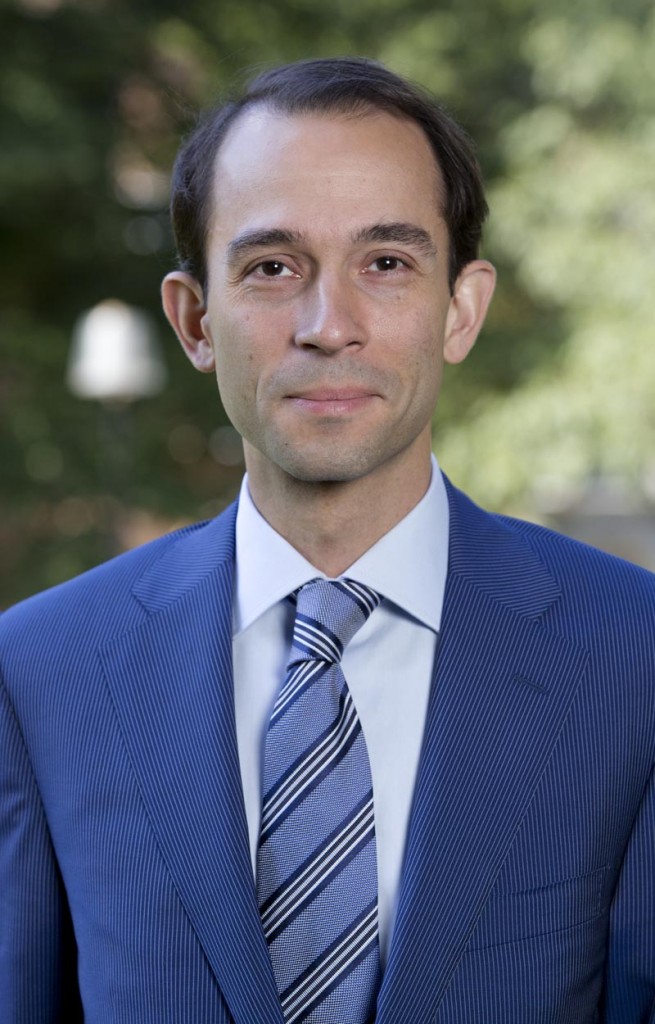ASTANA – Swedish companies have nearly dominated the telecommunications market in Kazakhstan since the early 2000s. Kcell, one of the top cell phone companies in the country and a subsidiary of the Swedish TeliaSonera, was established in Kazakhstan in 1998. According to its official web site data, as of Dec. 31, 2013 the company had 14.3 million of the 17 million subscribers in the nation. Tele2, another telecommunications provider from Sweden, entered the market in 2010 and has rapidly grown its subscriber database. The telecommunications market, however, is not the only sector where Sweden has interests. In an exclusive interview with The Astana Times, Swedish Ambassador Christian Kamill discussed the current relations between the two countries, spoke about prospects and shared his personal view of Kazakhstan.
Could you describe in general the bilateral relations between Sweden and Kazakhstan including diplomacy, economy and trade?
The contacts between Sweden and Kazakhstan have substantially increased in the last few years with the opening of embassies in both Stockholm and Astana. To increase trade with Kazakhstan and to promote investments are priorities for Sweden. This spring, three important business delegations have visited Kazakhstan and on June 2-3 Swedish MFA’s Director-General for Trade Eva Walder paid a visit to Almaty and Astana. During this successful visit, Sweden joined the charter of the Green Bridge Partnership Programme; the event was highlighted by a signing ceremony and the National Day of Sweden concert celebration in the capital. Walder was joined by a business delegation focusing on the railway sector, which is one of the key areas that we have identified. We, of course, note the policies outlined by the Nurly Zhol programme and the infrastructure investments in the coming years. With the important role that the railways have for Kazakhstan with its vast expanses, we know that Swedish companies have the know-how and the techniques that we hope could be of great use here.
We are pleased whenever we can to join the process of modernisation on the infrastructure of the country and there are other areas as well besides the railway sector. We see good prospects in the healthcare sector that is also a part of the social infrastructure. In 2014, trade turnover amounted to $120 million, where Swedish exports to Kazakhstan constituted $80,771,476, while Kazakhstan’s imports totalled $38 million; these include engineering machinery and equipment, chemical products, metal products, cars, pumps, centrifuges, compressors, appliances and different equipment for telecommunications. Besides telecommunications, Sweden is also represented in the mining sector (Atlas Copco, Sandvik, SKF and other companies), power (ABB), healthcare (Diaverum) and transport (Scania and Volvo). In total, there are over 20 Swedish companies operating in Kazakhstan; most of them are based in Almaty.
In your opinion, what are some of the parallels between Sweden and Kazakhstan?
Just like Kazakhstan, Sweden is very active in the sphere of nuclear non-proliferation; this is something we pretty much share. We both underline the importance of the United Nations’ system of multilateralism and we both are now running for the United Nations Security Council non-permanent seats in 2017-2018. If both our countries are successful, we will become partners. We compete in different respective groups, so we are not competing with each other. We do take similar stances on the issues of disarmament and non-proliferation of nuclear weapons.
Sweden marked National Day on June 6 and with your efforts this day was also marked in Kazakhstan. Could you tell us how it was celebrated here and how it’s usually celebrated in Sweden?
On the sixth of June we celebrate the Swedish National Day, which is also known as the Day of the Swedish Flag. On this day, we celebrate the election of King Gustav Vasa in 1523 and on the same date in 1809 the country adopted a new constitution, which served Sweden until 1975 when it was revised. On June 3, we held a symphony concert jointly organised with the State Philharmonic of Astana; we also launched an exhibition by Swedish artist Lyudmila Christeseva the next day at Kulanshi Art Gallery. It’s a contemporary art exhibition focusing on the notions of femininity and feminism. My country is considered one of the most equal countries when it comes to equality between men and women and the current exhibition explores these themes in a very interesting way.
Could you tell us about your impressions of Kazakhstan?
My family and I consider ourselves fortunate to be able to live in Kazakhstan in the period of big progress, which is easily noticeable. It’s a pleasure to work in this country. We also have the intention to see as much as possible of the different regions. Together with my family, so far I have visited southern Kazakhstan including Taraz, Shymkent, Zharkent and Khorgos. We enjoy visiting cultural events and concerts, museums and of course the picturesque vistas of Kazakhstan.


